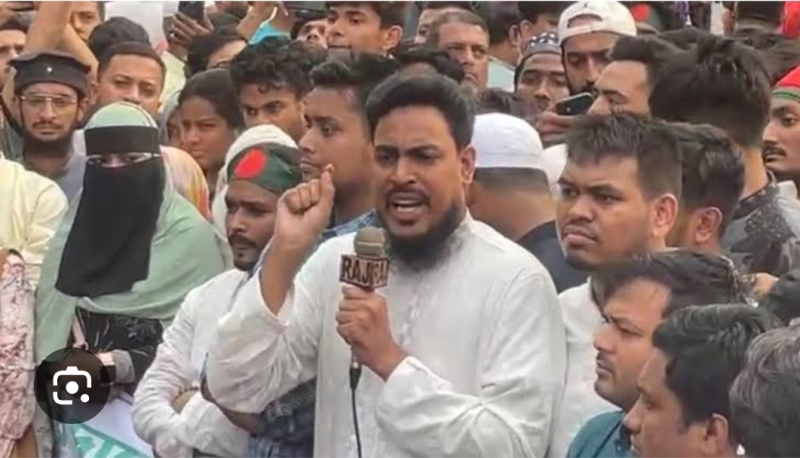- Israel Strikes Tehran with US Support Amid Nuclear Tensions |
- India Sees 9% Drop in Foreign Tourists as Bangladesh Visits Plunge |
- Dhaka Urges Restraint in Pakistan-Afghan War |
- Guterres Urges Action on Safe Migration Pact |
- OpenAI Raises $110B in Amazon-Led Funding |
NCP to Push for Reforms After Eid

File photo
Leaders of the National Citizen’s Party (NCP) are actively engaged in election campaigns in their respective constituencies during the Eid-ul-Fitr holiday. The party is preparing to initiate extensive discussions with various stakeholders on key reform issues after Eid, with a focus on the trial of the Awami League (AL), broader political reforms, and Constituent Assembly elections.
According to top NCP leaders, the party is prioritising discussions on political reforms, particularly in light of the BNP’s recent stance on the matter. Unlike the BNP, which has expressed reservations about altering constitutional principles, the NCP is in favour of significant changes. The party supports a four-year parliamentary term, as recommended by reform commissions, while BNP wants to retain the current five-year term. Another major point of divergence is the leadership structure, where BNP opposes the recommendation to separate party leadership from parliamentary leadership, whereas the NCP endorses it.
Given these differences, NCP leaders believe it is essential to hold discussions after Eid to build consensus on reform issues. The party’s Reform Coordination Committee will take the lead in facilitating these dialogues across different levels.
NCP has taken a firm position against allowing AL to continue its political activities in the country. The party strongly advocates for the annulment of AL’s registration through judicial means rather than an executive order. NCP leaders argue that AL and its affiliated organisations should not be permitted to operate politically while under trial. They are also opposed to any attempts to rehabilitate AL in national politics.
Senior NCP leaders have indicated that one of their primary political agendas post-Eid will be to press for the legal dissolution of AL’s registration. This issue, alongside calls for AL’s trial over the “July genocide” and broader political reforms, will feature prominently in the party’s future activities.
Recent statements from BNP leaders have raised concerns among NCP policymakers. BNP has taken a cautious, if not dismissive, approach toward political reforms, particularly regarding changes proposed during the interim government. At a recent event in Chattogram, BNP Standing Committee Member Amir Khasru Mahmud Chowdhury remarked, "Sorry, this is not your responsibility. In the future, it is the responsibility of those whom the people of Bangladesh will elect and send to parliament. Not your responsibility. Don't forget this."
This stance has raised eyebrows within NCP, as BNP’s objections to reforms could potentially stall the process. NCP leaders worry that without fundamental reforms, the spirit of the July uprising will fade. However, the party does not wish to engage in a direct confrontation with BNP at this stage. Instead, it seeks to foster dialogue and cooperation where possible.
Beyond its focus on reforms and AL’s trial, NCP is also gearing up for significant organisational expansion. The party plans to announce its official manifesto and key programs after Eid, which will include rallies and public meetings across different regions. These events will highlight demands for AL’s trial, constitutional reforms, and Constituent Assembly elections. Additionally, the party will continue pushing for the cancellation of AL’s registration and may formally present this demand to the Election Commission (EC).
To strengthen its organisational structure, NCP aims to establish central and grassroots committees across the country. The leadership is working towards setting up district offices and a central headquarters, which are necessary for the party’s official registration. A senior leader revealed that NCP is targeting the completion of its organisational committee formation within the next two months.
On March 10, the EC issued a public notice inviting new political parties to apply for registration by April 20. However, the process has been met with legal challenges. Rastra Sanskar Andolan’s chief coordinator, Hasnat Qayyum, filed a writ petition in the High Court on March 16, questioning the validity of the EC’s notice. On March 18, the court issued an order suspending the effectiveness of the public notice, but this suspension currently applies only to the petitioner.
Given the stringent registration requirements—such as maintaining a central office, a central committee, district offices in at least one-third of administrative districts, and presence in at least 100 upazilas or metropolitan thanas with a minimum of 200 members each—NCP leaders acknowledge that meeting these criteria by the April 20 deadline is highly challenging.
A senior NCP leader, speaking on condition of anonymity, hinted that the party may also pursue legal avenues similar to Rastra Sanskar Andolan to challenge the EC’s registration process after Eid.
NCP is planning a series of post-Eid programs, including rallies at both divisional and district levels. These events will centre around the party’s demands for AL’s trial, constitutional reforms, and Constituent Assembly elections. Additionally, NCP intends to mobilise support from families of martyrs of the July uprising, injured victims, party workers, and general citizens.
Senior Joint Convener Ariful Islam Adib told media that while the exact details of these programs are yet to be finalised, they are expected to be outlined immediately after Eid.
With its focus on political reforms, legal action against AL, and grassroots expansion, NCP is positioning itself as a key player in Bangladesh’s evolving political landscape. The coming months will determine how effectively the party can translate its ambitions into action.

